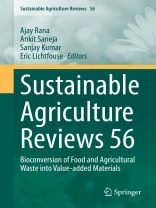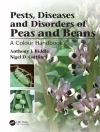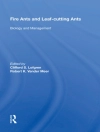This book reviews the sources, extraction, processing and applications of value-added compounds from agro-waste, with a focus on drug delivery, tea, apple pomace, lignin nanocomposites, bioethanol, fertilizers and sitosterol. Food residues provide bioactive molecules, enzymes, vitamins, antioxidants, and animal feed.
Tabella dei contenuti
Preface.- Chapter 1 Bioconversion of agricultural waste into bioethanol and fertilizers.- Chapter 2 Recycling apple pomace in food and agro-industries.- Chapter 3 Drug delivery systems for apple pomace active compounds.- Chapter 4 Synthesis and photochemical applications of lignin-based metal oxide nanocomposites.- Chapter 5 Valorization of agricultural waste sitosterol in medicine.- Chapter 6 Tea fruits and flowers are an unexploited resource of medicinal active compounds.- Chapter 7 Recovery of food additives from agro-industrial residues.- Chapter 8 Extraction of bioactive compounds from food waste.- Chapter 9 Plant and food waste as a source of therapeutic compounds.
Circa l’autore
Dr. Ajay Rana is a Project Scientist at CSIR-Institute of Himalayan Bioresource Technology, Palampur. He has published several research articles in peer reviewed international journals based on his research work with various international patents to his credit. He has successfully transferred few of the technologies from his research work to industries. He has huge passion for product and process technology development for the sustainable valorisation of agro and forestry bioresources using green and sustainable process/bioprocess technologies and post-harvest value addition. He has extensive experience in phytochemicals exploration, downstream processing, process optimization, and bioprocessing of bioactive phytochemicals from medicinal and aromatic plants.
Dr. Ankit Saneja obtained his Ph D from the Academy of Scientific and Innovative Research (Ac SIR) at CSIR-Indian Institute of Integrative Medicine, Jammu. He was a post-doctoral research associate at National Institute of Immunology, New Delhi, India from September 2017 to September 2019. Presently, he is working as Scientist at CSIR – Institute of Himalayan Bioresource Technology, Palampur. He has been recipient of several international awards such as the CEFIPRA-ESONN Fellow, Bioencapsulation Research Grant, PSE Travel Bursary. Dr. Saneja has to his credit several international publications. His research interest includes exploring different types of formulations for various biomedical applications.
Dr. Sanjay Kumar is serving as Director at CSIR-Institute of Himalayan Bioresource Technology, Palampur since June 2015. He is an eminent scientist in the field of plant sciences. His key research accomplishments includes discovery of a novel carbon fixation pathway, discovery of an autoclavable superoxide dismutase enzyme and deciphering the mechanisms of winter dormancy and drought stress in tea, enumerating molecular aspects of secondary metabolism in medicinal plants for catechins, picrosides, steviosides, shikonins and podophyllotoxin biosynthesis. He is fellow of National Academy of Sciences (NASI), National Academy of Agricultural Sciences (NAAS) and Crop Improvement Society of India. He is bestowed with prestigious VASVIK Industrial Research Award 2013 for Agricultural Science and Technology.
Dr. Eric Lichtfouse is professor at Aix Marseille University, Xi’an Jiaotong University and the University of Shanghai for Science and Technology. He has invented carbon-13 dating, a molecular-level method allowing to study the dynamics of organic compounds in temporal pools of complex environmental media. He is Chief Editor of the journal Environmental Chemistry Letters, and the book series Sustainable Agriculture Reviews and Environmental Chemistry for a Sustainable World. He is the author of the book Scientific Writing for Impact Factor Journals, which includes an innovative writing tool: the Micro-Article. He has awards in analytical chemistry and scientific editing.












